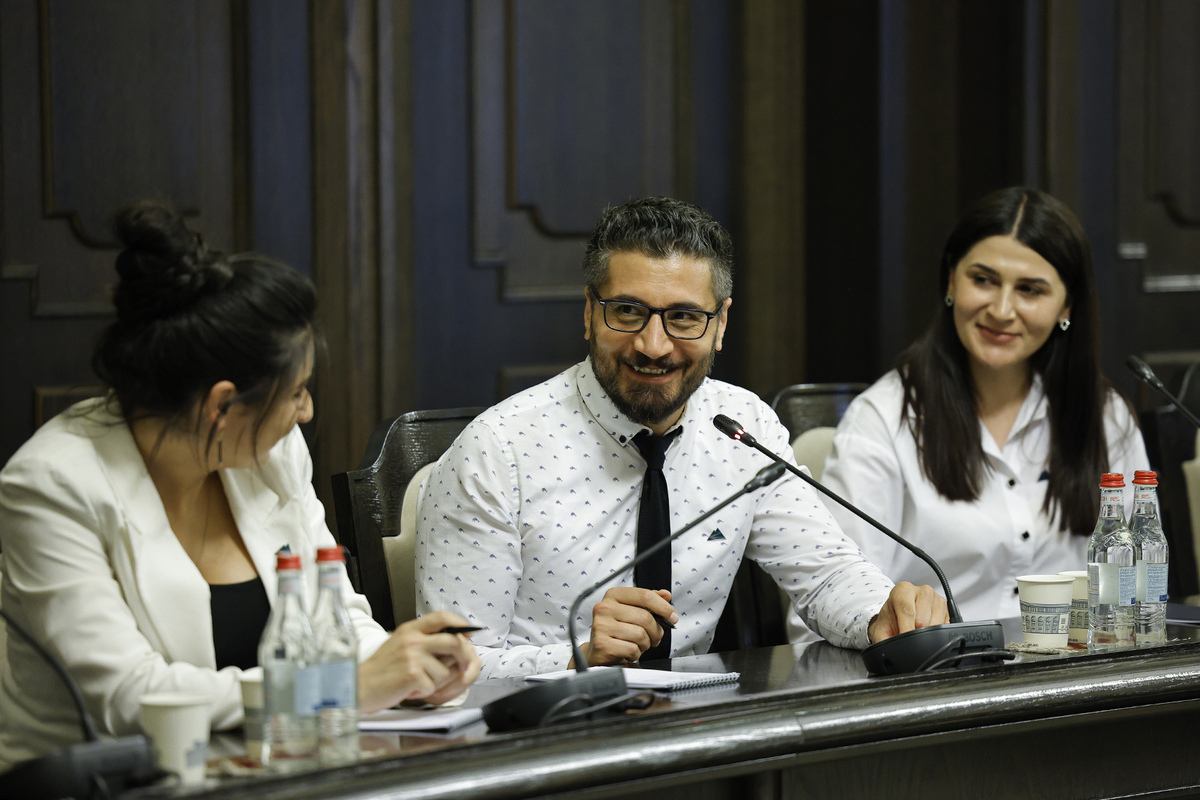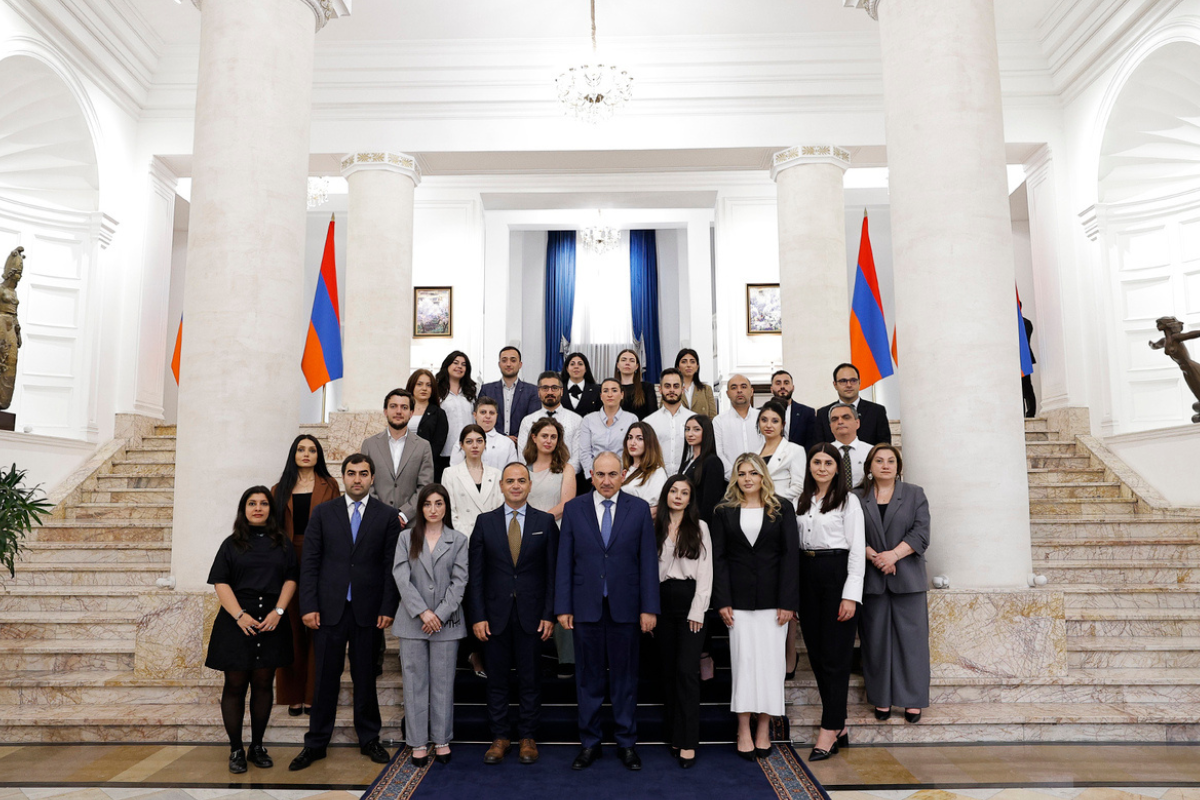Publications
-webp(85)-o(png).webp?token=e249c3f4edea232544790511a525ab13)
Life and Studies in the U.S. and France
Armen Abelyan was born and raised in Yerevan. Later he moved to Los Angeles, with his family. There, he studied accounting and worked in government institutions before moving into consulting and volunteer work. Then came the pandemic, which “forced” him to reassess his life and ask himself: “What do I really want to do?”
“There were several fields I was interested in, and the money was not a motivating factor this time around. I decided to change my career path and enrolled at the American University of Paris in the “International Management of Sustainability Systems” program. This is what’s called greening the economy. It covers ecological sustainability, biodiversity preservation, environmental pollution issues, the damage caused by extractive industries, and how these issues are addressed, and their impact on the social environment, people’s quality of life, their sense of happiness — which is directly linked to environmental conditions,” Armen explains.
Work through iGorts
During his studies, both on holidays and after graduation, Armen often visited Armenia: he felt comfortable there and enjoyed life in his homeland. On top of that, his master’s thesis was also connected to Armenia’s sustainable development, so he decided to come back — even if only temporarily.
“Many diasporan Armenians live with a myth of return to homeland, which in many cases fades over time. I had that desire too, but I wasn’t taking concrete steps in that direction. When I started visiting Armenia more often, after volunteering for the Armenia Tree Project, I kept hearing about the iGorts program. I thought: why not apply? At the time, I also had other opportunities abroad, but I received invitations from Armenia’s Ministries of Economy, Finance, and the Environment. Since I wanted to contribute to Armenia in my new field of expertise, I accepted the offer from the Ministry of Environment,” he continues.

At first, Armen worked in the Department of Climate Policy, where he was fortunate to attend UN meetings contributing to Innovation and Competitiveness Policy crafting. Then he was transferred to the Department of Biodiversity, the main agency coordinating the hosting of the upcoming meeting of the Parties to the Convention of Biological Diversity, COP 17, which is coming to Yerevan in October of 2026.
Armenia – One of the World’s Biodiversity Hotspots
“Armenia is very fortunate: its biodiversity is extremely rich due to its various microclimates. Globally, there are 36 biodiversity hotspots identified by the British environmentalist Norman Myers and recognized by Conservation International; Armenia is one of them. These 36 hotspots cover only 2.4 percent of the Earth’s surface, yet they house over 50% of endemic plant species. Armenia, for instance, has more bird species per square kilometer, than the United States. There are animals found nowhere else, like the Armenian birch mouse, the Sevan trout, which is already in the Red Book.
In many conversations, I remind people — knowing, of course, that it’s a myth and not strictly science— that Noah’s Arc brought a pair of every animal to Armenia, and much of what he carried remains here. Armenia may not be the country with the richest nature overall, but it is incredibly rich in biodiversity.
When people hear ‘biodiversity,’ they often think of tigers, elephants, or something exotic. But biodiversity also includes bacteria, insects and cells that play a vital role in the survival of larger species,” says Armen.
COP 17 on Biodiversity in Armenia
From October 18–20, 2026, Armenia will host COP 17 — the UN Convention on Biological Diversity. This is a strategically important event for Armenia, requiring extensive preparation and successful organization. In his role at the Ministry’s Department of Biodiversity, Armen is actively involved in the planning and preparation of this major conference.
“I think we are not yet fully using our potential. The Conference is an excellent opportunity to showcase our biodiversity as a driver for economic growth, leadership in pharmaceutical and biotechnological innovation, academic research. At the same time, we must understand that this event is not only for Armenia but for the entire world. Around 30–40,000 foreigners are expected to attend the conference. This will be the largest event ever hosted in Armenia, and naturally, it is a huge responsibility to welcome so many guests and present the country properly.

Financing for various projects will also be discussed, so it’s important to position ourselves well in that context. Last year, Azerbaijan hosted the UN Climate Change Conference. They used the platform very effectively to promote their economic interests. We, too, can present Armenia’s biodiversity in a way that highlights climate related biodiversity loss not only as an issue for humans but for the survival of the planet. Because there are certain areas that are vital to the health of the planet’s biodiversity — and ultimately, the health of the entire planet,” Armen notes.
Armen’s one-year iGorts contract ends in October this year, but he has been offered to continue working at the Ministry of Environment as a COP 17 project manager coordinating stakeholder engagement.
Stop Comparing Ourselves to Others
Reflecting on his personal experience of life in Armenia, Armen admits that adapting was relatively easy for him — easier than for many others — partly because he had no unrealistic expectations, and partly because he grew up in Armenia, visited often, and quickly resolved his citizenship status:
“My biggest challenge is finding my favorite products in Yerevan. And sometimes transportation is an issue, which is the same in most large cities, but I try to walk a lot and complain less. These are really just small things. The future is bright for Armenia.”
He often encourages his friends to come to Armenia, if not permanently, then at least for a while, to try to contribute in ways they can. In the 1990s, when Armen’s family and many others left for the U.S., life in Armenia was very different: the country had just emerged from war, opportunities were scarce, while in the U.S. one could grow quicker. Today, things have changed: life in the U.S. has become more difficult, more expensive, while Armenia offers many new opportunities.
“It’s easier to start a business here, there are support programs, financing, the International Corruption Index is much-much lower than in previous years, and there are plenty of initiatives one can join. In the diaspora, many dream of weekends, they don’t enjoy their work, and they think there’s no alternative. They call themselves “slave for pay”. Here, you can enjoy life more, find meaning in your work, even if you earn less, instead of just living in anticipation of elusive weekends or vacations.
I often say — whether at work or even during “friendly” arguments on buses — that if we divided all the countries of the world into three groups, Armenia would be in the top one-third tear in terms of living standards, quality of life, and infrastructure. We just need to stop comparing ourselves to others and ask ourselves not what our country has done for us, but what we have done for our country.”
By Nare Bejanyan
-
News
-webp(85)-o(png).webp?token=428b7f0b0db8414293ad87e7c96061ca) 02.02.2026Is It Possible to Open a Bank Card in Armenia Remotely if You Are a Non-Resident?
02.02.2026Is It Possible to Open a Bank Card in Armenia Remotely if You Are a Non-Resident?

-webp(85)-o(png).webp?token=0f42b0b6495e56f8d4c718a8194ddb85)
-webp(85)-o(png).webp?token=413d245f6df5612dcb1aaf700e0e040b)